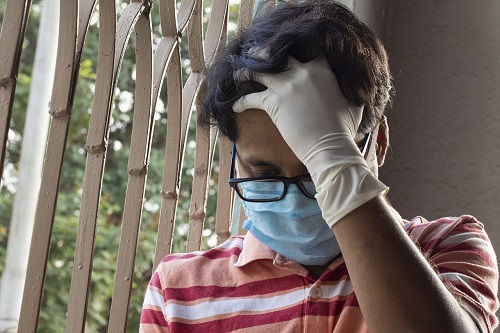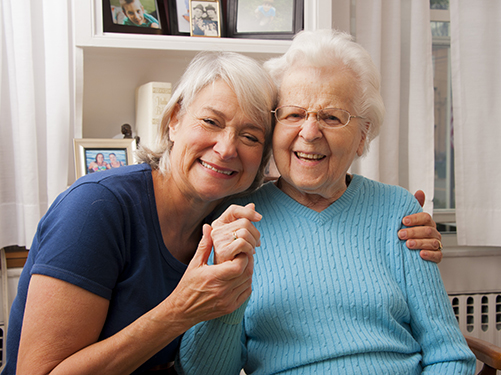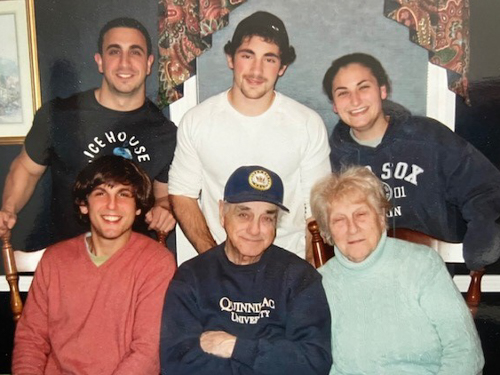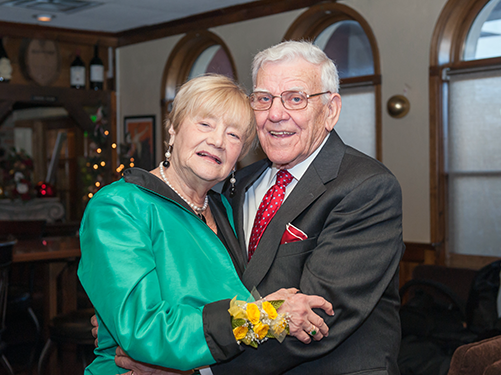How can we help?
888-283-1722
Call us now at 888-283-1722
24/7 Referrals and Nursing Support
Voices of Care Blog

Ways to Cope When you Cannot Visit a Loved one in a Facility
Posted on May 12, 2020 by Sandra Yudilevich Espinoza, Ph.D., LICSWThe thought of not being able to see or comfort a loved one who is living with an advanced illness is heartbreaking. For those whose loved ones are in a hospital, assisted living or skilled nursing facility during the COVID-19 pandemic, the ban on visitors can be beyond frustrating.
It’s a feeling I remember well from 34 years ago when I was not allowed to visit my close friend, Robert, in the hospital. The circumstances were different – a miscommunication during a shift change prohibited my visit – but the result was the same: I couldn’t be with my loved one to offer comfort and support when he needed it most.
I felt helpless and angry. And although today’s visitor bans are a way of protecting patients and staff from becoming infected with the novel coronavirus, I can understand why patients’ families feel powerless.
If you are barred from seeing a loved one in a facility, here are some things you can do to support them and take care of yourself:
Provide virtual, loving care
People are using various means of staying in contact with their loved ones, including Skype, FaceTime, Zoom, walkie-talkies, or simply making regular phone calls to the bedside landline. Facilities understand how heart-wrenching it can be for patients and families not to be together at such times and will help facilitate communication wherever possible. I have a friend who visits her mom daily, strictly by standing at her window while also getting her on the phone.
Remember to send cards and pictures whether or not calling is possible; that way, your loved one will have something to hold onto when you are not there. Keep doing whatever you can do for as long as you can. That is realistically all that you can do.
Managing your thoughts and feelings
In addition to feeling powerless, many caregivers report feeling sad, anxious, exhausted, and guilty. These feelings likely wake you up at night and make you second guess yourself. It is difficult to suggest how you might “manage” your feelings, as everyone is so different, and coping is so personal. I can, however, suggest that you keep the following in mind:
- You are not alone in your feelings and you are not crazy or bad for having them.
- We are living in a time replete with conundrums and most decisions are two-edged swords.
- You are grieving not only the potential (or actual) loss of someone, you are also grieving all the missed moments, the inability to reassure your loved one, and your inability to fulfill your vision of yourself as caregiver in this situation.
- Reach out to people who can support you and help you make decisions.
- Keep a journal (written or oral).
- Take walks when you can.
- Enjoy whatever bit of life you can so that you can refresh and replenish and thus be able to continue to do the hard work of caring for your loved one.
Learn about Care Dimensions' caregiver resources.
About the author
Sandra Yudilevich Espinoza, Ph.D., LICSW, is Director of Psycho-Social Support Services for Care Dimensions.
Additional Posts
Honoring Caregivers, Offering Support on National Caregivers Day
Posted on February 20, 2025 by Lisa Conti in CaregivingThe need for caregivers is increasing as the population ages and more people are diagnosed with dementia. The free Dementia GUIDE Program can help. ...
Continue readingHospice Brings Comfort and Eases Anxiety for Grandmother and Family
Posted on May 30, 2024 by Alison Samia in Caregiving, HospiceWhen brought on to hospice early, patients and their families can fully benefit from services that are available to them. A granddaughter recounts how they found Care Dimensions, and how much of a difference our team was able to make. ...
Continue reading'Hardest Thing I Ever Did': Veteran of 3 Wars Reflects on Caring for his Dying Wife
Posted on July 25, 2023 by Lisa Conti in CaregivingA retired Army sergeant major recalls how a Care Dimensions hospice team helped him ensure that his wife could be cared for at home, be comfortable, and die peacefully. ...
Continue readingAnyone—patient, family, care provider—can make a referral. Fill in the form online or call us today.
Since 1978, Care Dimensions, formerly Hospice of the North Shore, has provided comprehensive and compassionate care for individuals and families dealing with life-threatening illnesses. As the non-profit leader in advanced illness care, we offer services in over 100 communities in Massachusetts.
Copyright 2026 | Care Dimensions, 75 Sylvan Street, Suite B-102, Danvers, MA 01923 | 888-283-1722 | 978-774-7566 |









